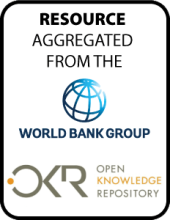Land Library Search
Through our robust search engine, you can search for any item of the over 73,000 highly curated resources in the Land Library.
If you would like to find an overview of what is possible, feel free to peruse the Search Guide.
/ library resources
Showing items 19 through 27 of 297.For centuries, farmers in the mountainous region of mainland Southeast Asia have practiced shifting cultivation, with plots of land cultivated temporarily and then allowed to revert to secondary forest for a fallow period.
This briefing note presents the findings of seven case studies conducted from May to June 2014.
Despite the many transformations taking place in Myanmar, its agricultural sector is lagging. A high proportion of rural households remain poor and food insecure as a result.
Evidence is mounting that secure
property rights have positive effects for poor people in
general and women in particular. The aim of this report is
to review what is known about women s access to and control
Land tenure security is crucial for
women's empowerment and a prerequisite for building
secure and resilient communities. Tenure is affected by many
and often contradictory sets of rules, laws, customs,
Southeast Asian countries are confronting climate variability, challenging agricultural sustainability and rural livelihoods.
A 2009 survey of cotton farmers in twelve states collected information about the use of georeferenced precision soil testing (PST). Adoption of PST technology and the interval until retesting were examined with a Poisson hurdle regression.
This study used linear programming (LP) to analyse land-use alternatives in the traditional Umbundu farming system in the Angolan central highlands. Farmers of the region have traditionally produced maize and pulses for subsistence and vegetables and timber as cash crops.
Farmers' access to and rights over seeds are the very pillars of agriculture, and thus represent an essential component of food sovereignty.




